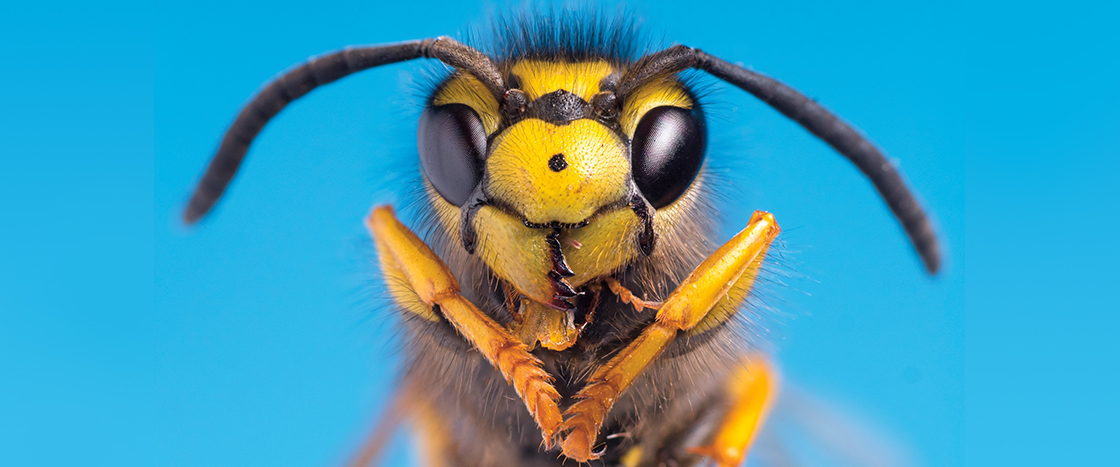Wasps have a reputation for being mean stinging machines. It’s true that some wasps, such as yellowjackets and hornets, can be aggressive. That’s because they are social wasps, which live in colonies, groups that can include hundreds of insects. When social wasps sting and inject a victim with venom, it’s often to defend their colony from a threat. But if you leave these wasps alone, they are more likely to leave you alone too.
Most wasp species do not live in groups. These solitary wasps live by themselves. With no colony to protect, they rarely sting humans. Instead, they use venom to stun prey so they can bring it back to their nest to eat. Like all wasps, solitary wasps are omnivores that feed on both plant material and insects.
Scientists are studying wasp venom for its germ-fighting properties. They think it could be used to develop new medicines.
Wasps are often viewed as mean stinging machines. Some wasps, like yellowjackets and hornets, can be aggressive. That’s because they are social wasps. They live in colonies. These groups can contain hundreds of insects. Social wasps sting and inject a victim with venom. But it’s usually to defend their colony from a threat. They’re more likely to leave you alone if you leave them alone too.
Most wasp species do not live in groups. These solitary wasps live by themselves. They have no colony to protect. So they rarely sting humans. Instead, they use venom to stun insect prey. That way they can bring it back to their nest to eat. Solitary wasps are omnivores, like all wasps. They feed on both plants and animals.
Scientists are studying wasp venom for its germ-fighting properties. It could be used to create new medicines.

